Filter by

Use-Wear and Residue Analysis in Archaeology
This book is designed to act as a readily accessible guide to different methods and techniques of use-wear and residue analysis and therefore includes a wide range of different and complementary essential topics: experimental tests, observation and record methods and techniques and the interpretation of a diversity of tool types and worked raw materials. The onset of use-wear studies was marked…
- Edition
- -
- ISBN/ISSN
- 978-3-319-08257-8
- Collation
- -
- Series Title
- -
- Call Number
- -
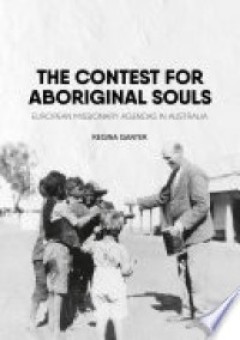
The Contest for Aboriginal Souls : European missionary agendas in Australia
This book covers the missionary activity in Australia conducted by non-English speaking missionaries from Catholic and Protestant mission societies from its beginnings to the end of the mission era. It looks through the eyes of the missionaries and their helpers, as well as incorporating Indigenous perspectives and offering a balanced assessment of missionary endeavour in Australia, attuned to …
- Edition
- -
- ISBN/ISSN
- 9781760462055
- Collation
- 280p
- Series Title
- -
- Call Number
- 266.00899915
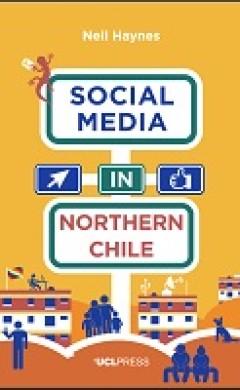
Social Media in Northern Chile
Based on 15 months of ethnographic research in the city of Alto Hospicio in northern Chile, this book describes how the residents use social media, and the consequences of this use in their daily lives. Nell Haynes argues that social media is a place where Alto Hospicio’s residents – or Hospiceños – express their feelings of marginalisation that result from living in city far from the na…
- Edition
- Ed. 1
- ISBN/ISSN
- 9781910634578, 9781910634585
- Collation
- 224
- Series Title
- Why We Post
- Call Number
- 301 HAY s
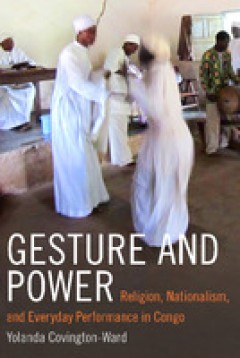
Gesture and Power: Religion, Nationalism, and Everyday Performance in Congo
In Gesture and Power Yolanda Covington-Ward examines the everyday embodied practices and performances of the BisiKongo people of the lower Congo to show how their gestures, dances, and spirituality are critical in mobilizing social and political action. Conceiving of the body as the center of analysis, a catalyst for social action, and as a conduit for the social construction of reality, Coving…
- Edition
- Ed. 1
- ISBN/ISSN
- 9780822374848
- Collation
- -
- Series Title
- -
- Call Number
- 301 COV g
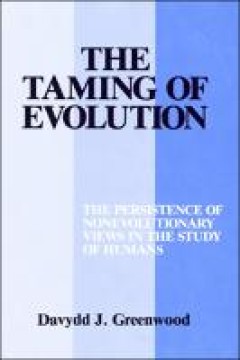
The Taming of Evolution: The Persistence of Nonevolutionary Views in the Stud…
The theory of evolution has clearly altered our views of the biological world, but in the study of human beings, evolutionary and preevolutionary views continue to coexist in a state of perpetual tension. The Taming of Evolution addresses the questions of how and why this is so. Davydd Greenwood offers a sustained critique of the nature/nurture debate, revealing the complexity of the relationsh…
- Edition
- Ed. 1
- ISBN/ISSN
- -
- Collation
- -
- Series Title
- -
- Call Number
- -
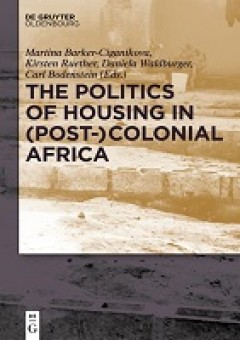
The Politics of Housing in (Post-)Colonial Africa: Accommodating Workers and …
Housing matters, no matter when or where. This volume of collected essays on housing in colonial and postcolonial Africa seeks to elaborate how and why housing is much more than an everyday practice. The politics of housing unfold in disparate dimensions of time, space and agency. Depending on context, they acquire diverse, often ambivalent, meanings. Housing can be a promise, an unfulfilled dr…
- Edition
- Ed. 1
- ISBN/ISSN
- 9783110598278, 9783110598735
- Collation
- 236
- Series Title
- -
- Call Number
- 301 POL p
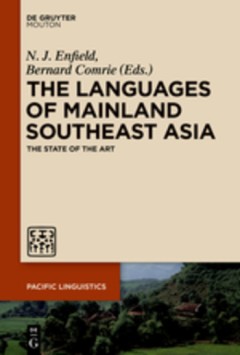
Languages of Mainland Southeast Asia: The State of the Art
Linguistics; Anthropology; Mainland Southeast Asia
- Edition
- -
- ISBN/ISSN
- 9781501501685
- Collation
- -
- Series Title
- -
- Call Number
- -
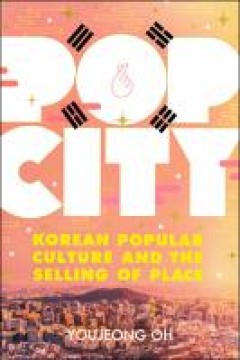
Pop City: Korean Popular Culture and the Selling of Place
This book examines how Korean television dramas and K-pop music are employed to promote urban and rural regions within South Korea to overseas tourists. Riding the international popularity of Korean entertainment, Korean cities have actively used K-dramas and K-pop idols in advertisements designed to attract foreign tourists to their regions. By examining the process of cultural marketing, this…
- Edition
- -
- ISBN/ISSN
- 9781501730733
- Collation
- -
- Series Title
- -
- Call Number
- -
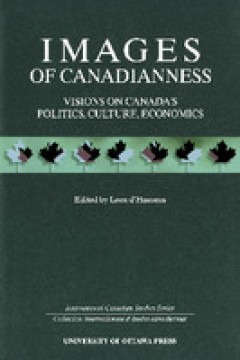
Images of Canadianness: Images of Canadianness
Author D'Haenens, Leen Language English Perlihat publikasi penuh Images of Canadianness offers backgrounds and explanations for a series of relevant--if relatively new--features of Canada, from political, cultural, and economic angles. Each of its four sections contains articles written by Canadian and European experts that offer original perspectives on a variety of issues: voting pattern…
- Edition
- Ed. 1
- ISBN/ISSN
- 9780776616124
- Collation
- 255
- Series Title
- International Canadian Studies Series
- Call Number
- 301 DHA i

Chinese Paintings in Chinese Publications, 1956–1968: An Annotated Bibliogr…
This bibliography includes publications issued between 1956 and August 1968 that reproduce Chinese paintings now in Chinese public or private collections. The great majority of these publications were produced in Mainland China, Taiwan, Hong Kong, or Japan. Each publication included in the bibliography has been provided with a detailed physical description of the publication itself: the amounts…
- Edition
- -
- ISBN/ISSN
- -
- Collation
- -
- Series Title
- -
- Call Number
- -
 Computer Science, Information & General Works
Computer Science, Information & General Works  Philosophy & Psychology
Philosophy & Psychology  Religion
Religion  Social Sciences
Social Sciences  Language
Language  Pure Science
Pure Science  Applied Sciences
Applied Sciences  Art & Recreation
Art & Recreation  Literature
Literature  History & Geography
History & Geography